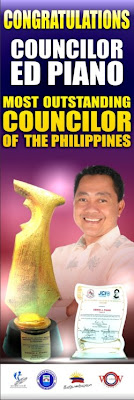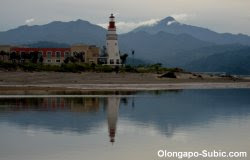FedEx loss blow to RP ability to attract foreign investment
THE ABILITY of the Philippines to attract foreign investment has been dealt a series of body blows in recent weeks in the wake of the political crisis facing President Gloria Macapagal-Arroyo.
Global credit agencies have downgraded ratings on the country while the Supreme Court has frozen the implementation of a key tax measure amid calls for the president's impeachment over allegations she cheated in last year's election.
The Philippines was dealt another blow recently when US logistics giant FedEx said it was moving its Asian hub from the former US military base at Subic Bay to China.
"The decision saddens and pains me," Senator Richard Gordon told Agence France-Presse. "The loss of FedEx's investment and presence in the Philippines is another blow to our efforts to attract and keep investments in the country."
FedEx announced the shift to Guangzhou's Baiyun International Airport on earlier this month, playing down the damage costs to the Subic Bay economy and the overall Philippine investment climate.
The decision comes as a personal blow to Gordon who, as the first head of the Subic Bay Metropolitan Authority, convinced FedEx to establish its hub in the Philippines in 1995.
Although about 700 local jobs will be directly affected by FedEx's move, Gordon believes it casts a shadow over the future of the entire Subic Bay area which currently employs about 70,000 people.
The US company says, however, it will be business as usual for its Subic Bay hub until the new base in China opens in three and a half years.
Even after the FedEx hub in Subic closes, "the company is expanding its airport operations in Manila and back-office functions [in the Philippines] as part of a regional strategy," it said in a statement.
The Philippine government's decision not to renew the controversial US Bases Agreement in 1991 led to the closure of Subic Bay and the nearby Clark airfield, the biggest military establishments outside the US, throwing tens of thousands of Filipinos out of work.
Gordon was one of the prime movers in transforming Subic Bay, one of the region's biggest deepwater ports just 120 kilometers (74 miles) west of Manila, into an economic and tourist zone.
It was Gordon who flew to Memphis, Tennessee in the early '70s, to visit FedEx' founding president Frederick Smith and convince him to visit Subic Bay where he had been a shore patrol officer during the Vietnam War.
At the time Gordon said: "Subic was a repair and logistics base of the US Navy for 94 years. I figured it would be ideal for cargo hub operations."
Aside from a strategic location, he offered FedEx a tax-free haven, customs-free operations, cheap first-class housing for as many as 50 pilots and executives, schools for their children, and English-speaking, skilled workers.
The government spent 40 million dollars on new radar coverage, an instrument landing system and a concrete runway for wide-bodied jets.
"Having FedEx in Subic helped in the subsequent investment drives," Gordon said.
"FedEx was delighted because the more locators I was able to bring into the zone, the more business for FedEx.
Thus, zone management and FedEx had a mutually beneficial relationship that was good for FedEx, good for the locators and, more important, good for the country not so much in terms of investments but in terms of employment and income generation.
"Barely two years after FedEx set [up] shop, Subic had a total employment of 70,000, even more than during the time of the US bases," Gordon said.
In 1991 Subic Bay had employed about 46,000 people, generating 350 million pesos annually in taxes with a high pass-on effect to businesses in the region.
Peter Wallace, a business and political consultant said: "Business goes to where it can get the best deal. In this case China offered FedEx a much better deal than it was getting here ... it is as simple as that."
Gordon said one of the contributing factors for the loss of FedEx was the lack of continuity after his departure as administrator.
"There was no active promotion in bringing in more investments. More importantly, during the Asian financial crisis no one cared for the investors. Buildings and basic infrastructure was not maintained."
"As a result companies like French telephone maker Thompson Audio, BICC Cables and a lot more left and half of Acer went to China," he said.
Gordon said from a business perspective, the loss of FedEx reduces the country's promotional clout while resulting in a loss of rental income and landing fees.
The Subic Bay Metropolitan Authority declined to be interviewed by Agence France-Presse but in a brief one-page statement said it was "regrettable" FedEx had opted to transfer to China.
It said the shift "will have little impact" on the flow of goods and services in and out of Subic Bay Freeport.
The statement pointed out that the 215 million-dollar port redevelopment is scheduled to be completed by 2007 the same time as the Subic-Clark Expressway is expected to be opened.
"All these are in line with our growth plans for the Freeport as a business gateway and are consistent with the needs of our present and future investors," the statement said.
The statement added, "It is business as usual in Subic."







0 Comments:
Post a Comment
<< Home